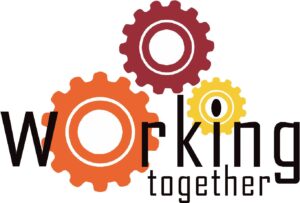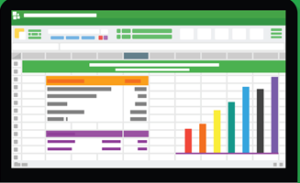Update from the Excel Learning Community
By Gregori Meakin, College of Arts and Humanities Office
Across the University, lots of colleagues are being creative with Microsoft Excel. The Excel Learning Community emerged from the Remote Working Group as a platform to using Excel. It is a Community of Practice – a repository of experience, skills, curiosity and enthusiasm, born simply from an interest in using Excel to improve our work. We are present on the USM Community HUB on Google Currents as the Excel Learning Community. We share video tutorials, links to tools and some discussions on the board itself – all contributions are welcome and encouraged.
 The Community connects and supports colleagues in demonstrating their developments to each other: It provide insights into valuable approaches that are readily available with some upskilling. Though in its infancy as a group, it’s benefit and purpose has manifested in the work of engaging with it. For my own developments of an online manual registration process, this was made possible in its current iteration by the knowledge of other colleagues I engage with, and to whom I was able to provide approaches for their developments – in turn I have engaged with other colleagues on their projects and in each engagement I pick up something new. Following a quick demonstration to another area there is an appetite to pursue developments further. Such collaborations are helping to support our systems and use our data well.
The Community connects and supports colleagues in demonstrating their developments to each other: It provide insights into valuable approaches that are readily available with some upskilling. Though in its infancy as a group, it’s benefit and purpose has manifested in the work of engaging with it. For my own developments of an online manual registration process, this was made possible in its current iteration by the knowledge of other colleagues I engage with, and to whom I was able to provide approaches for their developments – in turn I have engaged with other colleagues on their projects and in each engagement I pick up something new. Following a quick demonstration to another area there is an appetite to pursue developments further. Such collaborations are helping to support our systems and use our data well.
I found an organization which explains the importance of data – 12 Reasons Why Data is Important – it is worth a read! UCD is awash with data and information that is often going underutilized and even unobserved. We are rich in information about our processes, programmes and modules and informative about our teaching, and our students’ outcomes. Our data comes from InfoHUB reports, Banner, Curriculum tool. In some instances we have created data producing systems, such as Wufoo, used to provide support, contact and communication, and these generate data too. With obvious considerations for privacy and GDPR, there are great opportunities to get the most out of all the data available to us.
All people have some knowledge of using Excel, and many have enough skill to do some advanced tasks. But being an ‘expert’ in Excel is not a prerequisite to creating powerful resources. Excel is akin to having a toolbox full of different tools – most of which we rarely use. We may use the Philips and flat screwdriver frequently, a hammer, and even the drill. From time to time, we may find a need to use another tool in the box. Now imagine also that there is a set of tools in the box, a set of chisels for example. Again, we may not use most of those in the set but from time to time we will dip into it. This is a good analogy for the tools and skills that are available to us but not all of which we are knowledgeable or proficient in!
Projects can be really simple – one formula acting on a list of numbers, or really complex – merging multiple data sources and restructuring them aimed at a specific purpose. The difference is scale, and that scale is just incremental ‘chunks’ of learning and familiarity that may reside in a colleague or be scattered amongst them. Whatever our role may be in an overall project, each step is valuable.
 Excel functionalities can be broadly divided into two classes; those that create, formulate, merge and automate, and those that sort, organize, arrange, filter and display – those to build, and those to interrogate: Both builder and interrogator skills are their own individual skill set – knowing how to interrogate data are skills worth developing.
Excel functionalities can be broadly divided into two classes; those that create, formulate, merge and automate, and those that sort, organize, arrange, filter and display – those to build, and those to interrogate: Both builder and interrogator skills are their own individual skill set – knowing how to interrogate data are skills worth developing.
For those who don’t have a role in using or building, the generation of design ideas for projects are vital to the overall success of our developments. These opportunities are truly community led and do require buy-in, vision, and support horizontally to our peers, and vertically through management structures, with input from colleagues and support from officers and IT Support, EAG, and Registry for example. And of course, the Excel Learning Community is there for your ideas and to share them and support each other.
So, do drop into the Community where we will schedule meet-ups and specialist workshops. If you want to submit a video tutorial or comment a question or idea then please do. All input is welcome.
Bibliography
The Council on Quality and Leadership . (2021, May 07). 12 Reasons Why Data Is Important. Retrieved from CQL: https://www.c-q-l.org/resources/guides/12-reasons-why-data-is-important/
